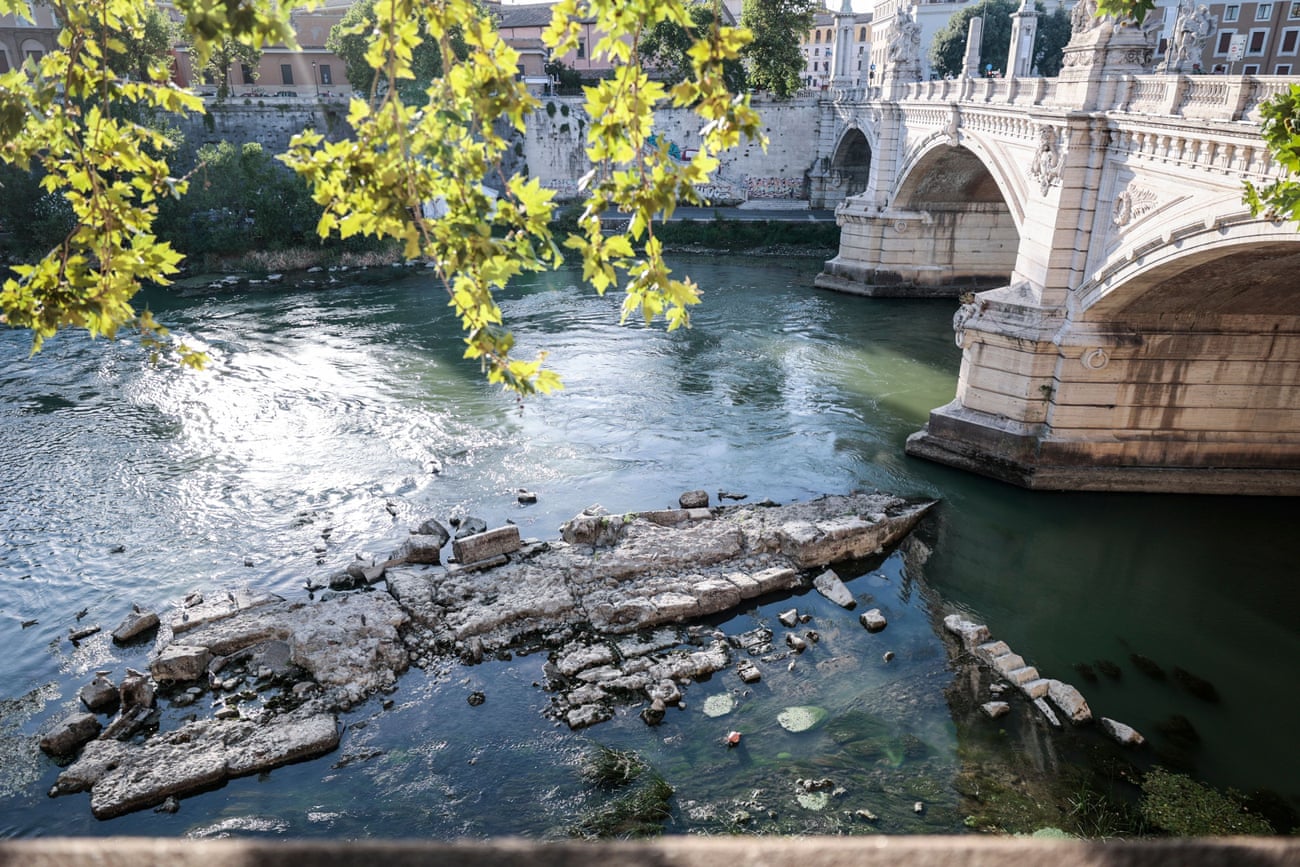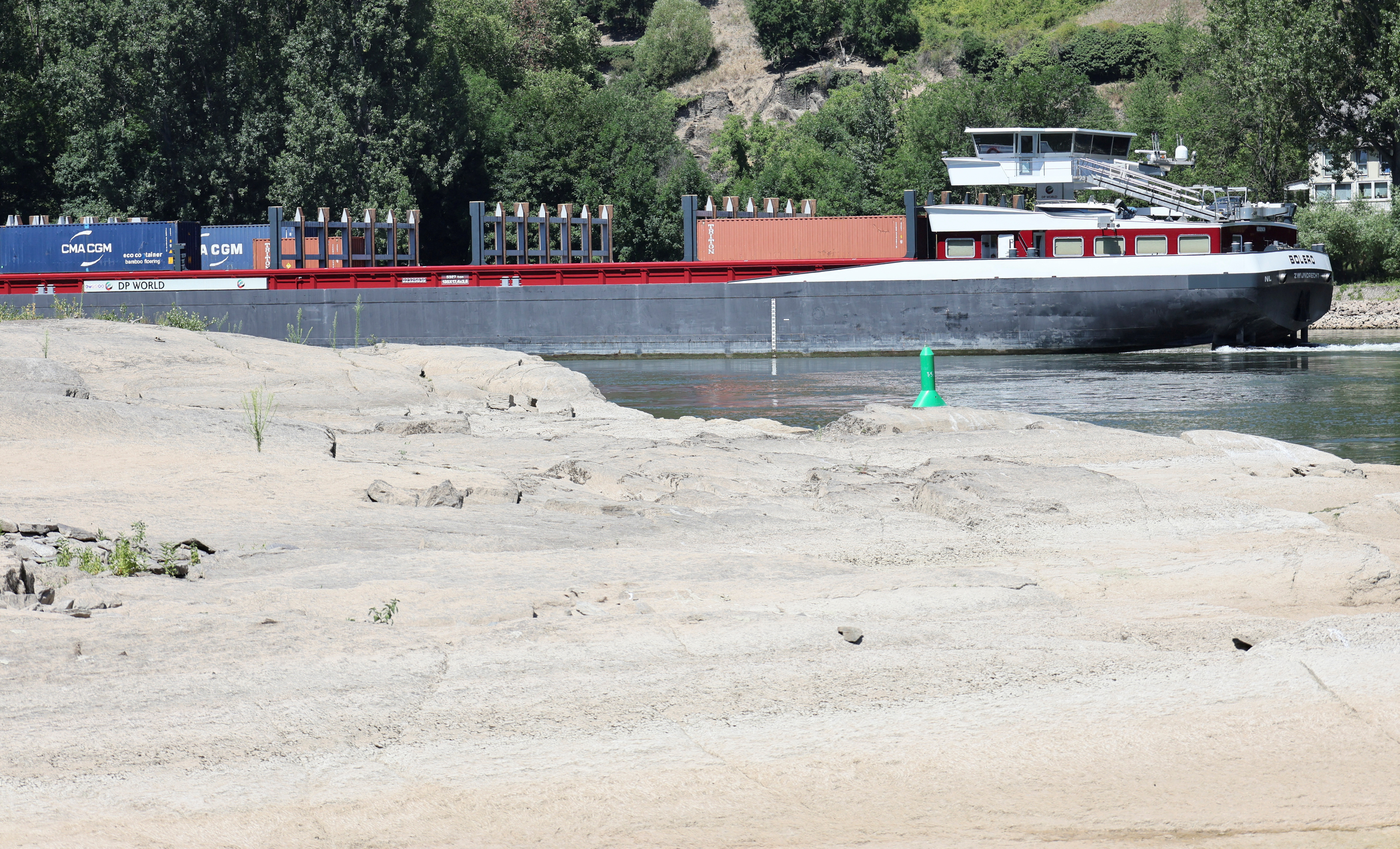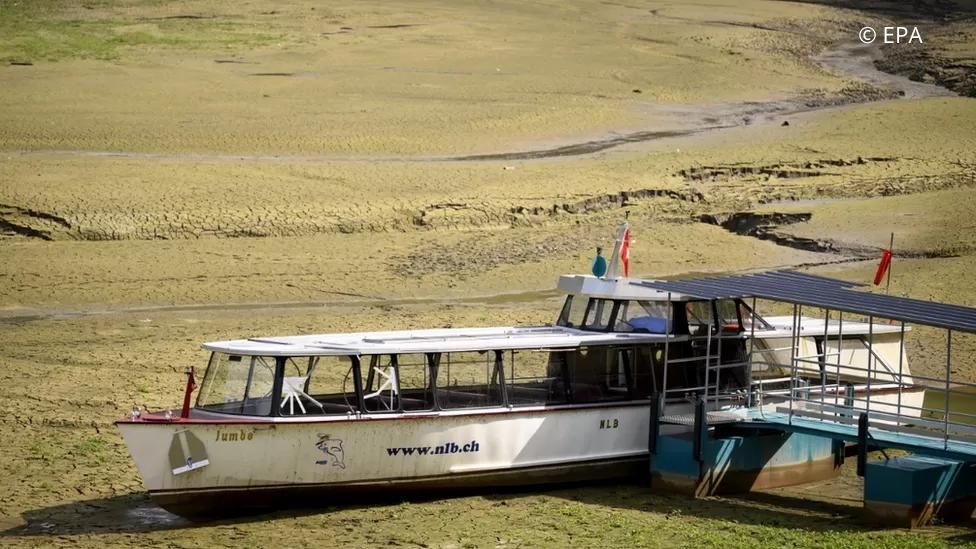In recent days, pictures have flooded the media of historical relics coming to the surface as the water-level of lakes and rivers recedes due to the unprecedented drought in Europe, ongoing from January 2022. Lost Roman relics, World War II warships, a lost village, and more historical artifacts are seeing the light of day. Impressive as these are, even more important may be the growing realization of the multi-faceted role of water in the economy, providing some hope that this extreme climatic event may force concrete action towards improving water management in Europe.

Source: The Guardian. Photograph: Minichiello/AGF/Rex/Shutterstock
This event, which the European Commission Joint Research Center (JRC) is calling possibly the worst drought in the last 500 years, affecting 47% of the continent, is causing stress across the economic and social spectrum:
Drop in agricultural production:
- The August issue of the Joint Research Centre Global Drought Observatory (GDO) notes that exceptional water and heat stress have substantially reduced crop yields by up to 16% for some crops, compared to the 5-year average.
Reduction in energy production:
- At a time when energy prices are historically high, water stress is negatively impacting energy production across Europe. The capacity of hydropower dams is severely impaired, with the JRC reporting that, in Italy, “hydro power energy potential stored in water reserves in the north […] remains less than half of the observed amount in the last few years.” The problem is not restricted to hydropower, but is also affecting thermoelectric power production due to the need for cooling water; a French nuclear power plant has also reportedly reduced production due to high river temperatures.
Disruption in shipping transportation:
- Substantial drops in the level of water bodies are disrupting commercial navigation, as rivers do not have the necessary depth to accommodate ships navigating with full loads. In the Rhine, ships were reported as navigating three quarters empty, restricting goods transportation and threatening supply chains and reportedly raising production costs fivefold or more. One industrial lobby group in Germany was reported as saying that "the ongoing drought and the low water levels threaten the supply security of industry”.

Source: Reuters. Photograph: REUTERS/Wolfgang Rattay
Threat to drinking water supply:
- The French Minister for ecological transition stated that more than 100 French towns have run out of water, with deliveries made by truck to ensure drinking water availability. From Portugal to Italy, measures have been put in place to curtail consumption by the public. For example, some towns in Italy have banned the use of water for washing cars and patios or filling pools and swimming pools, while some Spanish municipalities have restricted running water supply to only a few hours per day.
Under normal conditions, the capacity of water to disrupt all aspects of the economy and society seems a theoretical exaggeration, but under extreme conditions, such as the current drought event, it becomes all too visible. GWP-Med remains committed to promoting Integrated Water Resources Management, and the Water-Energy-Food-Ecosystems Nexus approach in practice, which call for the optimal allocation of water in recognition of cross sectoral impacts and needs, including those of ecosystems.
Integrated approaches are also necessary to deal with the intense competition between users and sectors which especially surfaces during times of extreme events. The importance of this is highlighted by another recent report that a leading carmaker has exhausted the water supply at the location of their production plant in Germany, precluding any further commercial and industrial development plans in the area. Water being a shared resource across users and sectors, coordination across sectors and based on social consensus is necessary.
As climate change gathers pace, such extreme climatic events are getting ever more frequent. It is worth noting that the 2022 European drought followed the 2021 catastrophic floods, which caused deaths and widespread economic losses. Water, or the lack of it, is the means through which climate change impacts will be felt, and it is clear that the current disasters must galvanise bold action towards efficient water management, as a key to mitigating climate disasters.
